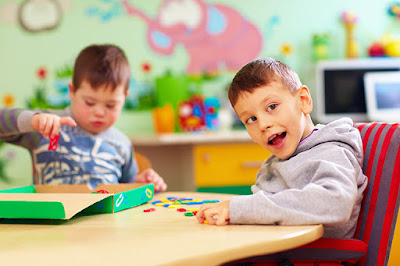Why students with disabilities are capable
of graduating on time.
This is why they’re not.
09/11/2019
U.S. education system is failing
students with special needs.
by Sarah Butrymowicz and Jackie Mader
As a teenager, Michael McLaughlin wanted to go to college. He had several disabilities, including dyslexia and bipolar disorder, which threatened to make the road ahead more difficult. He sometimes had trouble paying attention in class and understanding directions.
He also had an IQ of 115 — on the upper ranges of what is considered average. With help, he should have been able to graduate alongside his classmates, ready to pursue higher education.
But instead of graduating from Bartlett High School in Anchorage, Alaska, in four years, he took six. After high school, he did odd jobs for several years.
This story also appeared in The Huffington Post
“Our son’s education was a waste,” his mother, Michelle McLaughlin, said. “We could get no one to listen or do what was needed.”
There are 6.6 million public school children enrolled in special education in the United States, 13 percent of all public school students. Kids like Michael make up the vast majority of them. Their disabilities shouldn’t keep them from achieving the same standards as their peers — and experts estimate that up to 90 percent of students with disabilities are capable of graduating high school fully prepared to tackle college or a career if they receive proper support along the way.
Yet, just 65 percent of special education students graduate on time, well below the 83 percent four-year rate for American students overall. Many of those that do earn their diplomas find themselves unprepared for the real world. After high school, students with disabilities have lower college graduation rates than their peers and earn less once they join the workforce.


No comments:
Post a Comment